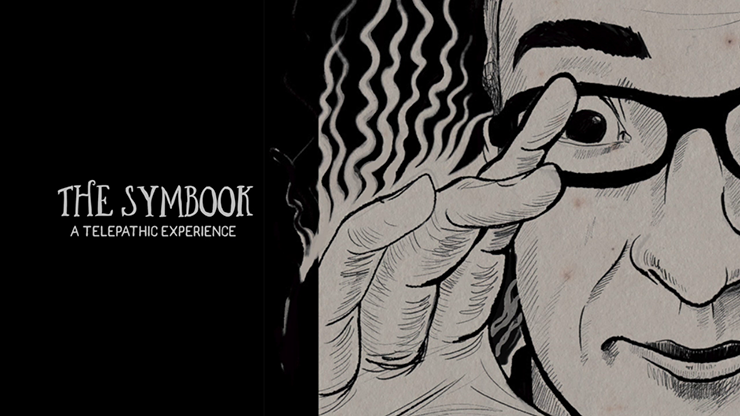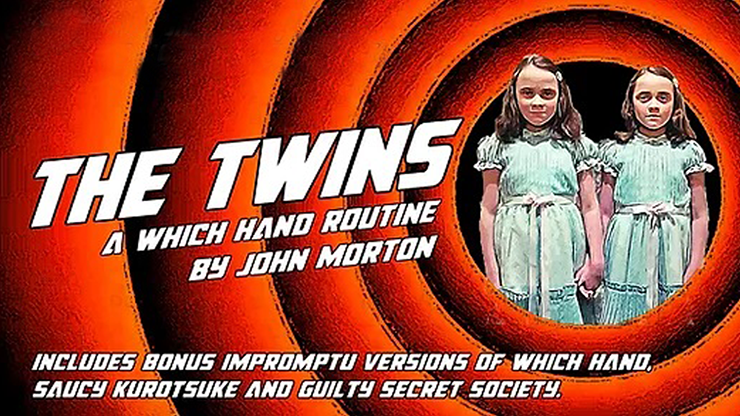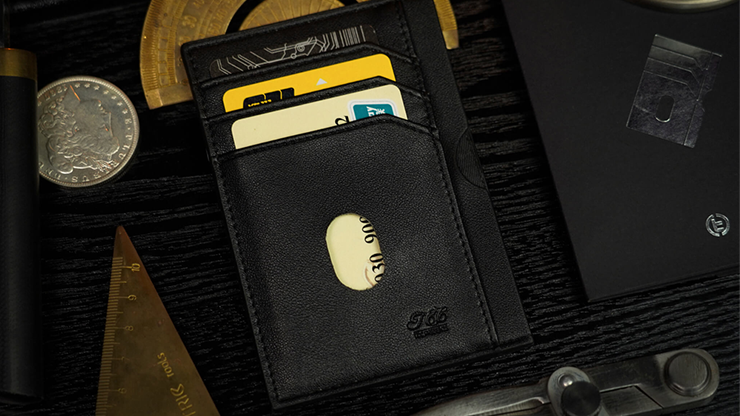The Symbook Book Test
Pepe Monfort
Grupokaps Proucciones S.L.
(Based on 2 reviews)

1. The spectator takes the book and OPENS IT FREELY TO WHATEVER PAGE HE LIKES.
2. The spectator FREELY THINKS OF WHATEVER WORD HE WANTS.
3. The mentalist DIRECTLY CAPTURES THE THOUGHT-OF WORD in the way that he would do it, if he really had telepathic powers.
This effect has been used for some 30 years by some of Spain's greatest mentalists. Today, for the first time ever, Gkaps will be making it available to all magicians, but especially mentalists.
This book provides you with multiple ways to present that experience.
THE CLASSIC BOOK TEST EXPERIMENT - However, with the Symbook the spectator has the book in his hands and can open it to any page and make his choice of word from any line.
DRAWING YOUR THOUGHTS - A spectator freely opens (up) a book to any page and imagines something he finds in its pages. The mentalist picks up a marker and a pad of paper and draws the image (in the spectator's mind) that the spectator is merely thinking of.
TELEPATHY WITH FOUR SPECTATORS - Four spectators freely think of anything found in the text of a book. The mentalist concentrates and simultaneously captures the thoughts of all four spectators. This effect is totally self-working.
"One of the BEST book tests I have ever seen."
- Jorge Blass
"Wow! Magicians are very lucky....Very, very clear and strong effect."
- Dani da Ortiz
"I was totally fooled. I didn't have a clue. I lost all my hair THINKING how this could be possible."
- Jandro
"Direct, clear and absolutely impossible!"
- Nacho Diago
(Gimmicks and Online Instructions)
Reviews
(Top ▲)
(Top ▲)
Overview
Is there such a thing as a perfect book test? That is, handing a book to a spectator and they think OF ANY word and you’ll be able to divine it. Unfortunately, most book tests you cannot. I can only think of two book tests where that is a possibility, but they are electronically driven. For us regular performers, we need to restrict the words down to a few possibilities. In order to restrict the words to a manageable few there are several options. They can be the first word of a page, the last word of a page, words with more than a certain amount of letters and so on. After a word is chosen the revelation becomes the issue. Does one use an anagram, a first letter pump or last letter pump? Often, it sounds like a game of 20 questions. The Symbook Book Test could be a viable option if one would like the impact which a book test provides but doesn’t suffer the strains of most book tests.Effect
A spectator is given a book of short stories. They are asked to find a page and look at a word they can visualize. The book is then closed and with just a couple of statements, the performer divines their thought of word. Nothing is written down and any page can be looked upon.Method
The method used, although not unique to The Symbook Book Test, is not used very often. Instead of having to pump for a particular letter, the force words have semantic and non-semantic relationship to each other. What that allows you to do is get a virtual “hit” right away and if not, have a clean justification for the “miss”. There are only four direct and four in-direct words used in The Symbook Book Test which makes it easier than other book tests out there but also will require a bit more audience management as the same words repeat often on every page.Product Quality
The book weighs in at 196 pages and measures 5½” x 8¼”. It is not convenient to carry in a jacket pocket if you were intending to use it for walk around, but will be comfortable in a backpack or for use in a parlour and stage setting. The type and format is easy on the eyes and large enough to spot a word easily. The instructions are 45 pages long and does have some blanks in between each section. They are easy to read and the method is clearly spelled out. The issue I have with this and other book test written produced the same way is that the paragraphs repeat themselves and upon more than a cursory glance, it is noticeable. I spotted repeated sentences just 10 lines apart. For me that is too close for comfort.Ad Copy Integrity
For the most part the ad copy is correct but there is one egregious piece of misinformation I find particularly misleading which is…“the spectator FREELY THINKS OF WHATEVER WORD HE WANTS”. This is blatantly not true. The spectator is directed to choose a word that they can “PICTURE IN THEIR MIND” which is basically a physical object.









